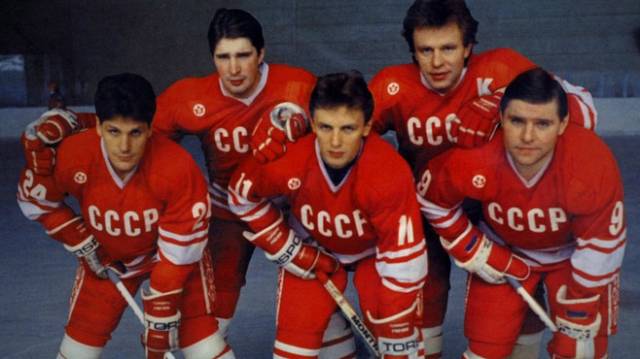
 You don’t need to know a single thing about hockey to find Red Army fascinating, and that is a wondrous achievement on its own. Directed by Gabe Polsky, the documentary chronicles the story of the Soviet Union’s hockey team, which achieved international glory during the Cold War. Through interviews with journalists, retired KGB agents and former team members - particularly Team Captain Slava Fetisov - the film points out the fact that “it was politics really”, and highlights the parallels between the end of the Soviet Union and the team’s disintegration.
You don’t need to know a single thing about hockey to find Red Army fascinating, and that is a wondrous achievement on its own. Directed by Gabe Polsky, the documentary chronicles the story of the Soviet Union’s hockey team, which achieved international glory during the Cold War. Through interviews with journalists, retired KGB agents and former team members - particularly Team Captain Slava Fetisov - the film points out the fact that “it was politics really”, and highlights the parallels between the end of the Soviet Union and the team’s disintegration.
First we learn how Anatoli Tarasov, regarded as the father of Russian hockey, set out in the late 1950’s to create the ultimate team. Emulating techniques he first discovered in chess (especially Anatoly Karpov) and the Bolshoi ballet, coach Tarasov infused his team with the need to develop precise strategy. Team members would train seven days a week and live in a compound where they developed their physical and mental skills daily. He eventually ended with a team that included a core of five players who would go on to become legends (including Fetisov, Alexei Kasatonov, Sergei Makarov, Igor Larionov and Vladimir Krutov) and who would make the Soviet Union the world champion.
Energetically edited by Eli B. Despres and Peter Zeitlinger, who are able to create real suspense as they speak of events which you may already know the outcome of, Red Army plays out like a political thriller that goes beyond the usual condemnations of communism in American cinema, to make us wonder if all sports can become slavery of sorts. We see how many Russian players would defect the country and seek asylum in the United States and Canada, only to be recruited as players who would have to prove their worth if they wanted to remain in the West.
While the film suggests that the story of this team is the story of Russia, the implications really touch on many universal topics, such as the dangers that come with any extreme political system (democracy even!) in which politics are given more importance than people. Thought provoking and entertaining in equal measures, Red Army goes beyond being a sports movie, into being essential viewing.